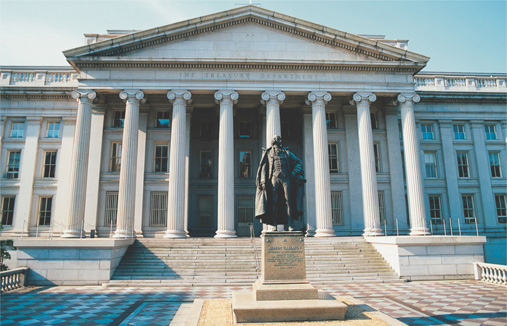Section 2 Federal Reserve Functions
Preview
Objectives
After studying this section you will be able to:
- Describe how the Federal Reserve serves the federal government.
- Describe how the Federal Reserve serves banks.
- Describe how the Federal Reserve regulates the banking system.
- Understand the Federal Reserve's role in regulating the nation's money supply.
Section Focus
The Federal Reserve functions as the government's banker and as a banker's bank. It regulates the nation's banking system. It also monitors and regulates the nation's money supply.
Key Terms
- check clearing
- bank holding company
- federal funds rate
- discount rate
- net worth
As the central bank of the United States, the twelve district banks that make up the core of the Federal Reserve System carry out several important functions. The Federal Reserve System does the following:
- provides banking and fiscal services to the federal government
- provides banking services to member and nonmember banks
- regulates the banking industry
- tracks and manages the national money supply to meet current demand and to stabilize the economy

The Department of the Treasury does its banking at the Federal Reserve.
Serving Government
The United States government has an operating budget of about $2.3 trillion. It raises about $1.1 trillion annually in taxes. It makes about $1 trillion in transfer payments through programs such as Medicare and Social Security. For its banking needs, the federal government turns to the Federal Reserve.
Federal Government's Banker
The Federal Reserve serves as banker for the United States government. It maintains a checking account for the Treasury Department. It processes payments such as social security checks, IRS refunds, and other government payments. For example, if you receive a check from the federal government and cash it at your local bank, the Federal Reserve deducts the amount from the Treasury's account.
Government Securities Auctions
The Federal Reserve also serves as a financial agent for the Treasury Department and other government agencies. The Fed sells, transfers, and redeems government bonds, bills, and notes, or securities. It also makes interest payments on these securities.




